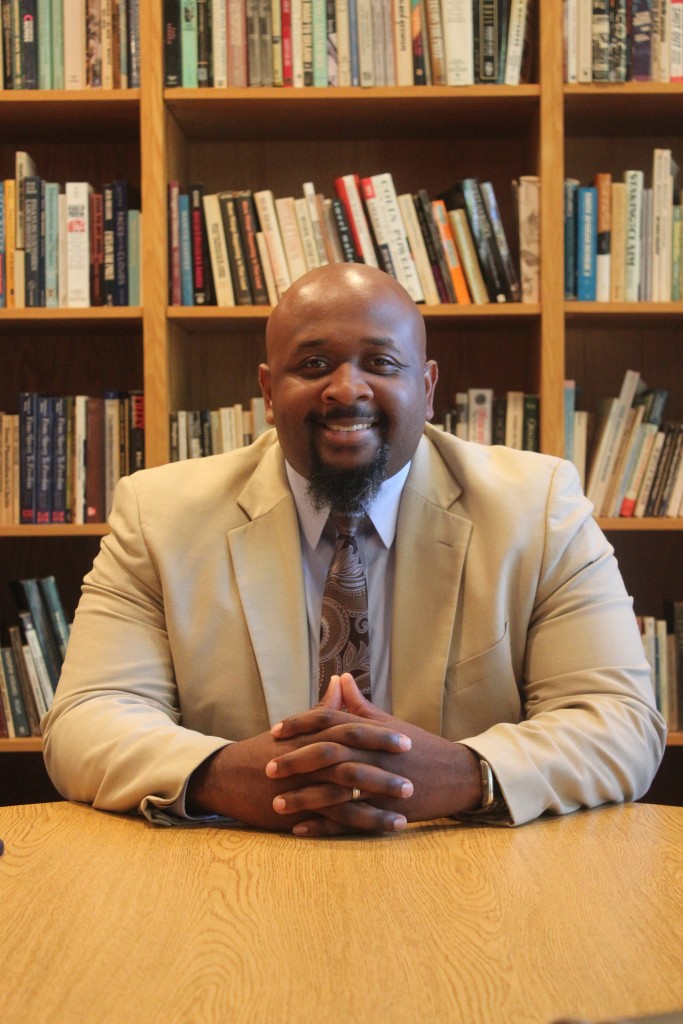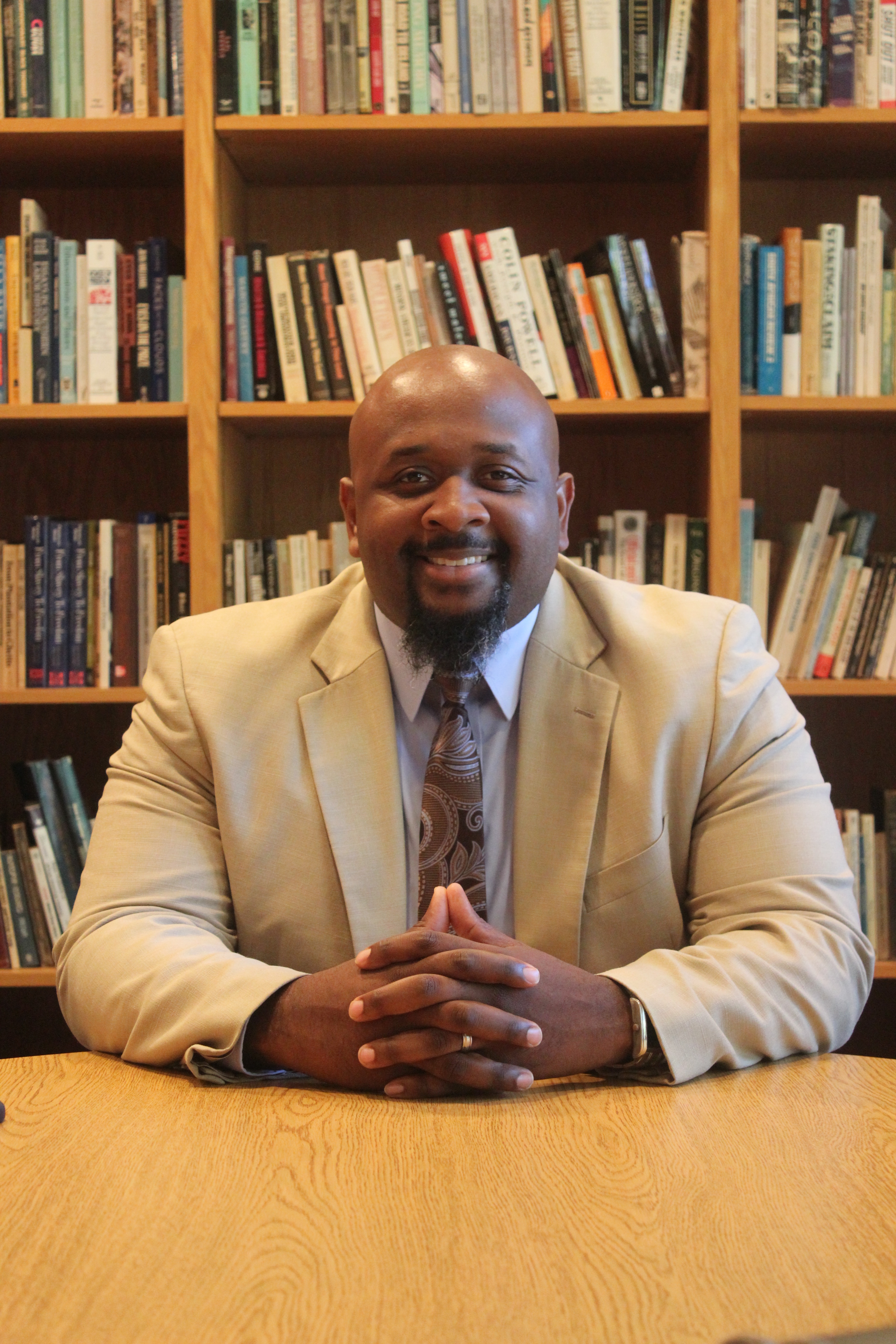By Ariel Worthy
The Birmingham Times

Ahmad Ward recalled explaining racism to his oldest daughter when she was 8 years old. “This white wide receiver named Riley Cooper said [the n word], and they caught him on camera saying it,” Ward said, “My daughter asked, ‘Daddy, what’s a racist?’ I thought, ‘Man, I haven’t talked with you about that yet?’” That inspired a topic for TEDx Birmingham, a local nonprofit, dedicated to finding ideas and sparking conversations that lead to a better city. “It was awesome,” Ward said. “We need to have honest conversations about race; it was kind of quiet in there. It was in-your-face, but it has to be. We’re talking about the same things we’ve been talking about for decades.”
Ward is the Vice President of Education and Exhibitions at the Birmingham Civil Rights Institute. Originally from Elizabeth City, North Carolina, Ward moved to Birmingham after being offered the job 17 years ago.
Ward has been married to his wife, Dafina, for 11 years. “I met her here at work,” he said. “I worked with her mother.” Last year the couple hosted Birmingham Black Marriage Day. “We were promoting healthy family relationships and solid family structures,” Ward said. “We had a renewal ceremony, about 20 couples joined us; we want to show that healthy relationships are an option. Brothers have a tendency to live longer if they are married.” They are hoping to pick it up again next year.
Speaking with Ward, his enthusiasm about justice and equality radiates through him. His passion, he said, comes from simply being a black man. His honestly is welcomed now more than ever given the police shootings of two unarmed black men in separate instances last week and the subsequent conversations about race following the shooting deaths of five white police officers in Dallas. “My experience as a black man in this country is different,” Ward, 41, said. “It has to be acknowledged because I’m dealing with being the number one suspect within a three-mile radius any time something pops off, and I don’t even have to fit the proper description.”
There was a time when Ward said he would debate with people about social issues in this country, but now he says he doesn’t sugarcoat anything. “I had a group of white teenagers come in and I gave them the most honest responses,” Ward said. “We talked about redlining, G.I. bills; I threw it all on the table. There’s no reason to baby people; we can’t do that anymore.” Talking with more strong-headed people than none, there have been a few lightbulb moments.
“I did an interview with MSNBC in April,” Ward said. “As soon as I finished a middle aged white man sent me an email and said he respected my opinion and that he felt like he learned more about what black people are facing, and that I opened his eyes to a lot of things going on; he was a conservative white man. I thought that was really cool.”
When he is not at work, he is working with Caring Men and Caring Women Inc. “It’s kind of like Big Brothers, Big Sisters; it’s a mentorship for kids in Bessemer,” Ward said. “It’s for kids in Bessemer Middle School.” His favorite thing to do is to be goofy with his daughters, Masani Ashiya and Aminah Elon, and post videos online. “We remixed Ante Up by M.O.P., we did Candy Up,” Ward said laughing. “I deal with a lot of heavy stuff so it’s a good way to deviate from all of it.”
The BCRI’s 25th anniversary is next year, so Ward is preparing for next year and beyond. “We’re doing a lot of blow out events, and the year after is the 55th anniversary for the Letter from the Birmingham Jail, March on Washington, Children’s crusade, church bombing, and it will be a lot going on that year as well.” Over the years the BCRI has brought in a variety of exhibitions, but his favorite is an exhibit from 2013 — “Marching On.”
“It was about the children’s crusade,” he remembered. “You would come in and we built a classroom inside the gallery and you would walk out of the classroom like you were going to go march. You could see the background of how you would go marching. We had chained fences in front of certain places, like swimming pools. We would take them to jail, and pose questions. We had people who actually lived through it help us with it.”





